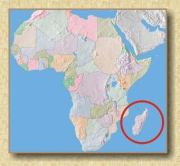With a symbolic flair, the satchel that I’d used my entire undergraduate career snapped in half minutes after turning in my second-to-last final exam. And thus was a signal of a closing chapter in my life.
I graduated Saturday on our university’s Jeffersonian quad with the announcer growling, “Jordan Christopher Butler, in coursu honorum magna cum laude!” as if we were filming a movie trailer. My mother, grandmothers, siblings, cousin and her boyfriend hooted and clapped underneath the beaming sun. Four years of the college experience—classes, friendships, girlfriends, late nights, studying abroad, partying, working and so on—came to an end.
When they had left Reno, my leaving for the Peace Corps became very real. I’ve been saying my last goodbyes to coworkers and friends and have been eating at my favorite Reno restaurants for perhaps the last time. I renewed my bank cards and driver’s license the other day not because they were expiring soon but because they would expire during my two years in Madagascar. I’ve also slowly been acquiring clothes and gear for my excursion abroad. (I’ll provide a list of what I’ve packed in a future blog entry.)
The idea of my leaving struck me most when I purchased my plane tickets last week. Having dates, flight numbers, and cities written onto paper transforms the Peace Corps from nine months of speculation into an oncoming reality. I leave the morning of June 7 for Philadelphia, spend a few days there for orientation, then fly from New York City to Johannesburg via Dakar, spend a night in Johannesburg, then finally arrive in Madagascar’s capital, Antananarivo, on June 12.
The Internet is such a beacon of knowledge, my friends. Through the Internet I’ve made contact with many other volunteers who will be in my Madagascar group from June 2008 to July 2010. Including me, I believe I know of 23 of them. They seem to be refined and admirable people: open-minded, generous, well-traveled, confident and so on. We’re all bound to become very close as we endure Madagascar together.
The collective knowledge that we volunteers have amassed has also taught me new things about Madagascar. It sounds like my chances of having electricity in my own are extremely high. I also learned that Madagascar has the highest third year rate of all Peace Corps countries; that is to say, more specifically, that 30% of Peace Corps volunteers in Madagascar choose to stay in Madagascar for a third year of service. This fact must speak volumes about the country and the meaningfulness of volunteers’ work there. (It’s reassuring to know that I’ll probably find meaning in my work and that I probably won’t be teaching English and HIV/AIDS awareness to rocks, palm trees, and Aye-ayes.)
It’s a little bizarre to find how hard it is to find information about Madagascar and what my life in the Peace Corps there will be like. I frequently read conflicting information about both subjects. For instance, I read that my monthly living allowance will be the equivalent of $130, and then I read somewhere else that it’ll be $250. The size of Madagascar adds to this problem, too, because climates and living conditions differ throughout the country. I wonder why the Peace Corps doesn’t try to alleviate our uncertainty with more information on what life may be like.
What I have found, though, is that the Malagasy people are tiny! If what I’ve read is accurate, the average height for Malagasy women is 5 feet and Malagasy men is 5 feet 4 inches. For the first time in my life, I’ll be a monster with my 5’ 11” stature and might even be able to intimidate something other than puppies and toddlers. Watch out, Madagascar: The Rock is coming.



 Posted by Jordan Butler
Posted by Jordan Butler 


